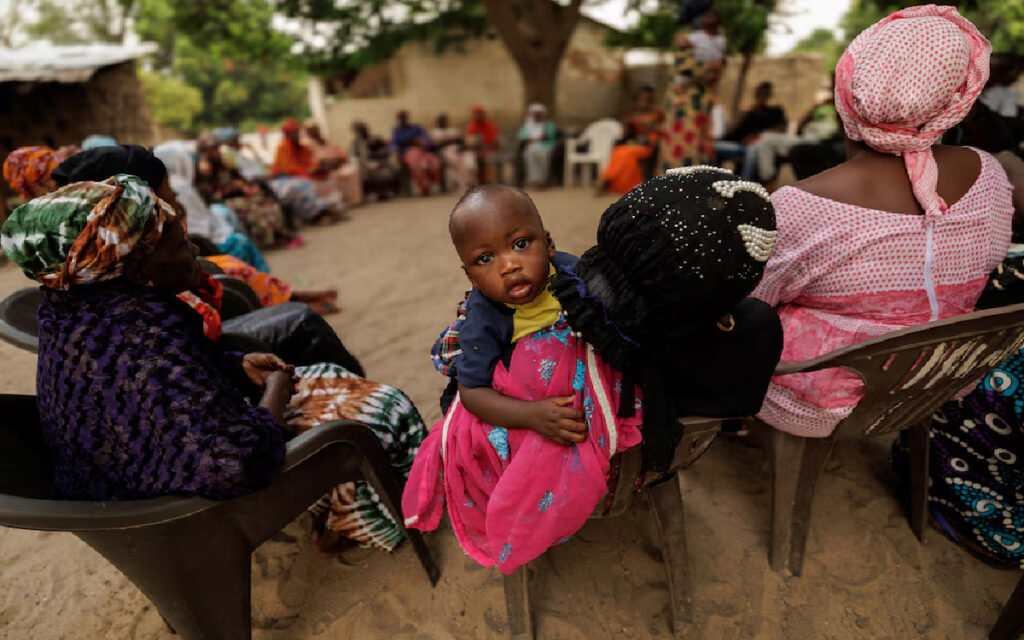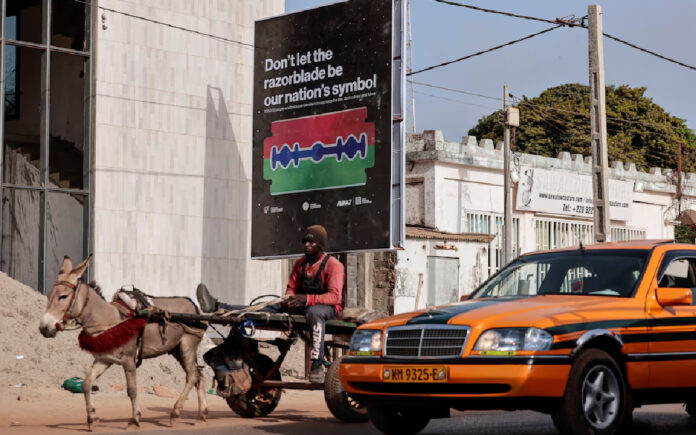Banjul: For Mariama Jarjou, the decision to take her two daughters to a traditional circumciser at ages 5 and 4 was an act of love — a painful yet essential ritual that would secure their status in the village and ensure their eligibility for marriage.
An uncut woman, known locally as a “solima” in the Mandinka language of Gambia, faces social ostracization. “No one will eat the food she cooks, be her friend, or marry her,” explained Jarjou, now in her 50s.
In 2015, Gambia’s former dictator Yahya Jammeh outlawed female genital mutilation (FGM), citing its lack of necessity in Islam, the predominant religion in the country. Despite this, Jarjou now supports a parliamentary effort to repeal the ban.
If successful, Gambia, with a population of fewer than 3 million, would become the first nation globally to legalize FGM after prohibiting it. A final vote on the matter is expected by July 24.
“If we stop (FGM), women will suffer … and our children will not know our culture,” Jarjou asserted.

The Scope of FGM and its Impact
FGM remains prevalent in some African nations and diaspora communities, affecting an estimated 144 million women and girls across the continent. The practice involves the partial or total removal of external genitalia, leading to lifelong consequences such as chronic pain, infections, and complications during childbirth and menstruation. The World Health Organization emphasizes that FGM provides no health benefits, only harm.
Despite the ban in over 70 countries worldwide, enforcement in Gambia has been lax, with many families continuing the practice. According to a 2019-2020 government health survey, nearly 75% of women aged 15-49 underwent FGM, with 65% experiencing it before the age of 5. The prevalence decreases to around 46% among girls under 15.
Also Read | Dubai’s Crown Prince Takes Helm as UAE Defense Minister in Major Cabinet Reshuffle
Political and Social Divides
The debate over repealing the FGM ban is spearheaded by influential figures like Abdoulie Fatty, a prominent Muslim cleric, and Almaneh Gibba, an independent lawmaker from a rural area where the practice is widespread.
Fatty and Gibba argue that FGM is rooted in Islam, supported by around 96% of Gambians, though this claim is disputed by many Islamic scholars. They view the ban as imposition of Western values and advocate for its repeal to preserve tradition and culture.
Human Rights Concerns
Rights advocates express concerns that repealing the ban could lead to further rollbacks in protections for women and girls. Nafisa Binte Shafique of UNICEF warns of potential legislative changes affecting issues like child marriage and gender-based violence.
President Adama Barrow’s government, while committed to enforcing the ban during the parliamentary process, has allowed democratic debate to unfold. A recent parliamentary committee recommended maintaining the ban, citing FGM as a form of torture and discrimination against women. This recommendation, however, sparked controversy among proponents of repealing the ban.
Also Read | FBI Identifies the “Subject Involved” in Trump Assassination Attempt
Voices from the Ground
In villages like Sintet, debates among residents underscore deep-seated divisions. Anti-FGM activist Fatou Baldeh, who underwent FGM at age 8, advocates against the practice, highlighting its psychological and physical toll on girls.
Conversely, former circumciser Hawa Jallow defends FGM as a source of pride and argues that its legality ensures proper practice. Women like Jallow are respected community figures, consulted for health and marital advice, despite their controversial role.
Debate Over Legalizing
The debate over legalizing FGM in Gambia reflects broader tensions between tradition, religion, human rights, and public health. As lawmakers prepare for the final vote, the outcome remains uncertain, with profound implications for Gambian society and beyond.



